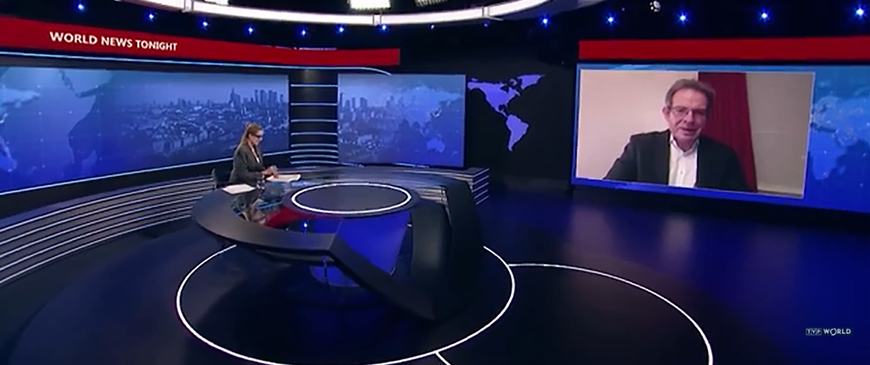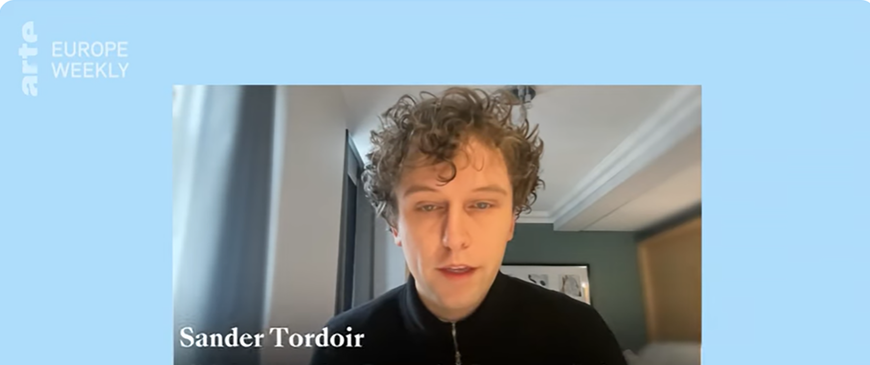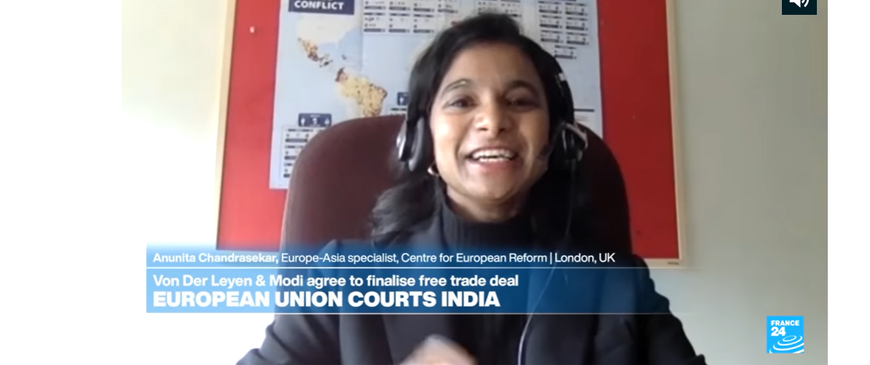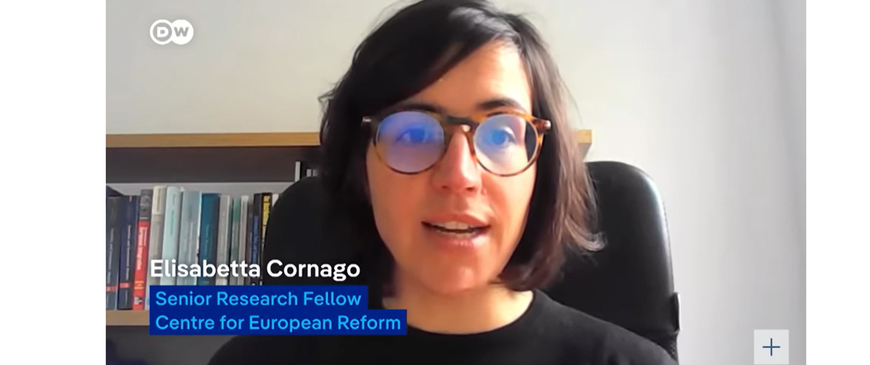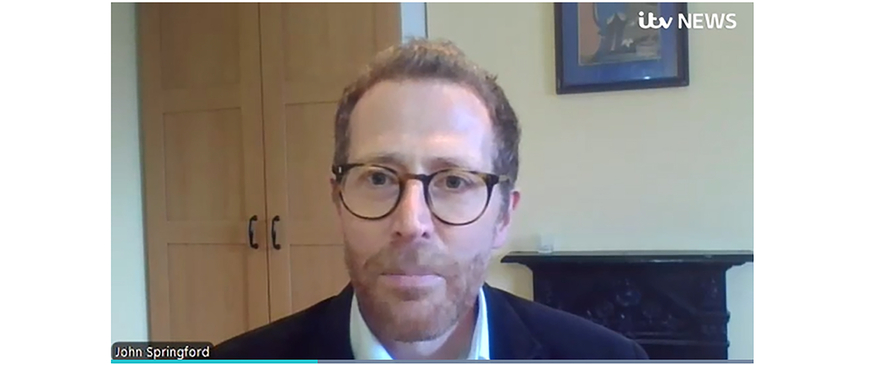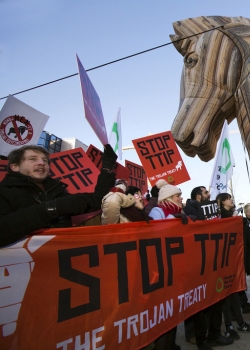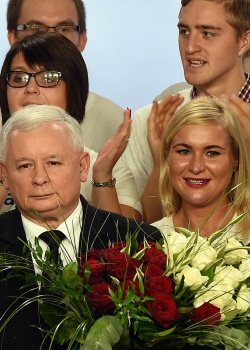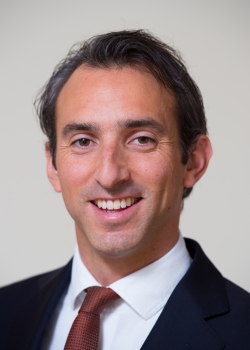Press
David Cameron has played with fire over EU immigration - will he now get burned?
11 November 2015
The Huffington Post
As the CER's John Springford has pointed out, the four-year idea first cropped up in Cameron's immigration speech in November 2014. At the time, there was a real panic on about the rise of Ukip and Cameron needed a long ladder to get him out of his hole.
Cameron's call to arms
11 November 2015
The Economist
John Springford of the Centre for European Reform, a pro-EU think-tank, says any four-year waiting time would constitute illegal discrimination under EU law. Mr Cameron himself conceded that some other answer might be needed.
The euro was pointless
11 November 2015
Brexit
A stimulating conference recently hosted by the Centre for European Reform made it clear to us the euro had already failed to meet the expectations of its architects before the crisis. Sharing currencies was unnecessary for economic convergence, if not actively harmful.
David Cameron is playing a self-inflicted bad hand well
10 November 2015
Cameron’s speech portrayed EU membership as essential (he described it as a guarantor of Britain’s security) yet refused to rule out ditching it and pointed to a modest and patchy list of asks (none of them concerning security, as Charles Grant of the CER notes) that purportedly make the difference.
Tok FM: Odcinek audycji 'Połączenie'
10 November 2015
UE według Davida Camerona. Rozmawiają Agata Gostyńska i Jakub Janiszewski
Refugee crisis: Europe's leaders meet to tackle crisis for the sixth time this year
10 November 2015
The Independent
EU institutions have pleaded with capitals to act, and will do so again in Malta.“This crisis is exploding in our faces,” said Camino Mortera-Martinez, from the CER. “The main problem is that we don’t have a common approach.”
Debunking three myths about TTIP
10 November 2015
CapX
Over the last couple of years a menacing and secretive global power, known only by its acronym, has emerged. It operates across borders, with scant regard for international law – let alone the lives of those under its rule. Left unchecked, it poses an existential threat to Western civilisation.
UK to lay cards on the table over European Union referendum
09 November 2015
Agence France Presse
John Springford of the CER highlighted that Cameron first promised a referendum in 2013, when UKIP was surging and his position looked shaky. "The strategy was a political one," he added. "I really don't think Cameron went into that speech with a clear view of what reform he even wanted from the EU."
Weaknesses remain, but Spanish growth prospects aren't bad
05 November 2015
Eurasia Review
In a recent policy paper, Simon Tilford, deputy director of the CER, a London-based think-tank, argues that the recovery is not a result of austerity and reforms and that the economy's outlook is cloudier than the dominant narrative suggests.
Cameron is warned key EU reform objective 'may be illegal'
04 November 2015
BBC News
Charles Grant of the CER told BBC Newsnight that restrictions on access to benefits was Downing Street's "most important" demand. "They made that demand as they see it as a more moderate request than their initial idea to have quotas on numerical limits on EU migrants coming into the UK," he said.
EU is split over how to prepare for euro crises to come
04 November 2015
The New York Times
"It's positive that the eurozone didn't break up," said Simon Tilford, deputy director of the CER in London. "But there are still major fault lines that have not been fully addressed. Europe is by no means out of the woods."
LBC Radio: Cameron's EU renegotiations
03 November 2015
Ian Bond speaks to LBC radio on David Cameron's EU renegotiations.
What does the parliamentary election in Poland mean for David Cameron and his reform plans?
03 November 2015
UK in a changing Europe
On 25 October, Poles ousted the centre-right coalition government of Civic Platform and the Polish Peasant Party that had been in power for eight years. Law and Justice, which won the electoral race, share many of the concerns of the British government about the current balance of power between member-states and EU institutions.
Britain out-spent on diplomacy by New Zealand, report finds
03 November 2015
The Telegraph
Charles Grant, director of the CER recently described the cuts as “madness” in a letter to The Telegraph, saying that the decision to keep to spending 2 per cent of GDP on defence should not disguise Britain fading from the international scene.
George Osborne demands EU safeguards for non-euro businesses
02 November 2015
The Guardian
The CER has suggested a new treaty article which would include new procedures to ensure greater transparency in discussions of the euro group so that non-euro countries know what is going on, and the creation of an "emergency brake".
EU overleeft crisis, maar Europa zal nooit meer hetzelfde zijn
31 October 2015
Volgens Rem Korteweg van de Londense denktank CER, Opvang is een hete aardappel, vandaar de zware uitspraken. Maar het gaat slechts om één miljoen mensen op 500 miljoen inwoners. In Istanboel zitten ook een miljoen Syriërs.
Are we there yet? Britain's 'brake-clause'
29 October 2015
Financial Times
Among Britain's EU think-tanks, the emergency brake has support: both Open Europe and the Centre for European Reform have backed a variant.
The pain in Spain
28 October 2015
Project Syndicate
LONDON – Spain is the eurozone’s latest poster child for austerity and structural reforms. Its economy has expanded for eight consecutive quarters, steadily gaining momentum and easily outperforming the rest of the currency union. Export growth has matched that of Germany; unemployment has fallen by over a million people in...
Austria plans border fence as migrants threaten EU movement
28 October 2015
Bloomberg Businessweek
“Unless something is done, we will see more and more fences and border controls, and then we will have a Schengen crisis, and if we have a Schengen crisis, we will have an EU crisis,” said Camino Mortera-Martinez of the CER.
Confounded by Spain
26 October 2015
Financial Times
There is much that is wrong about this rhetoric, and it fortunately provokes intelligent criticism, most recently in the form of a policy brief by Simon Tilford from the Centre for European Reform. Tilford pokes some well-judged holes in Madrid’s narrative.

